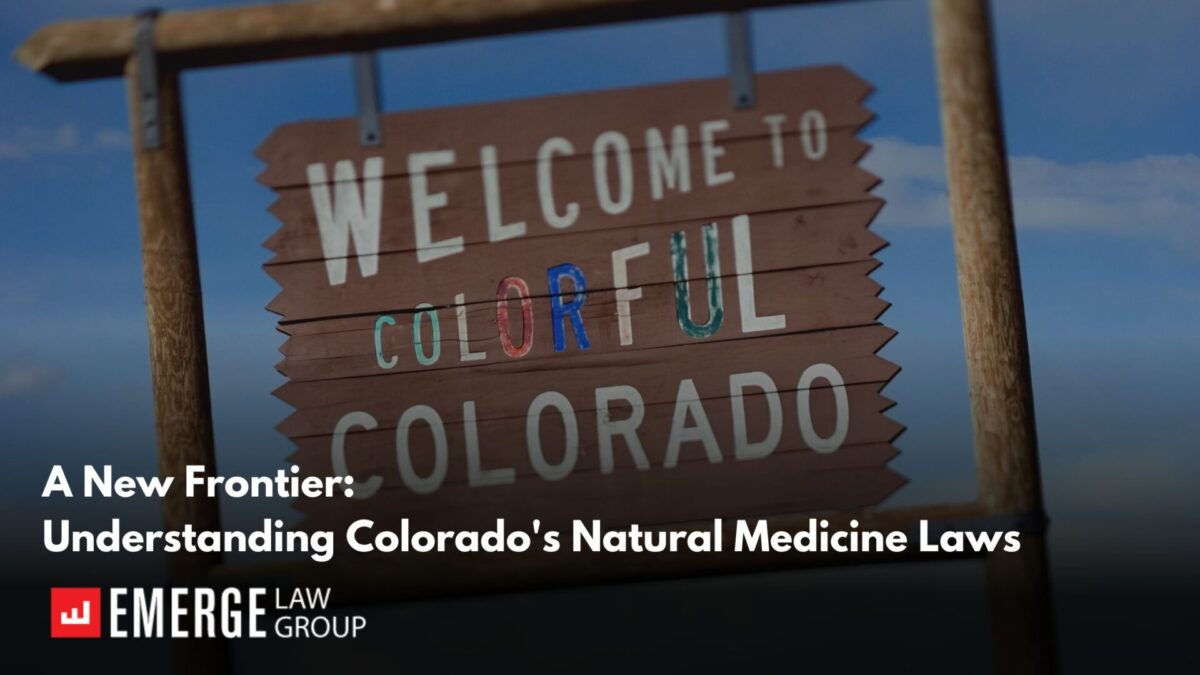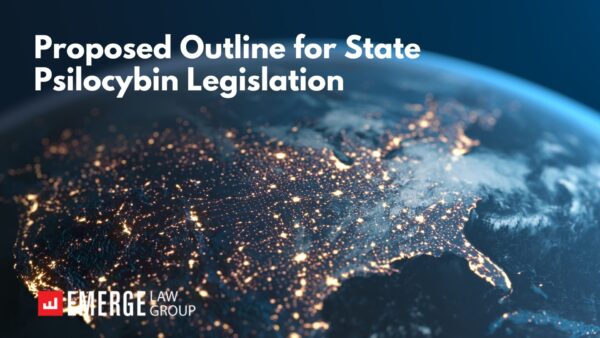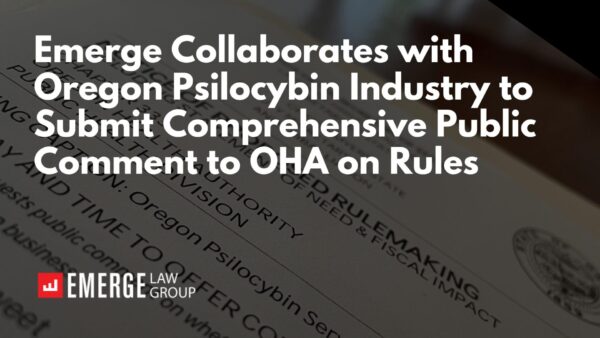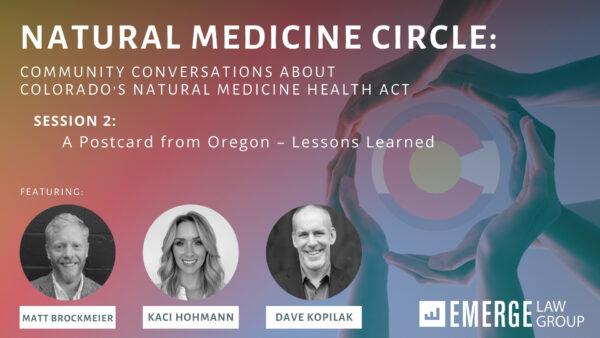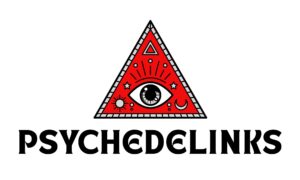Authors: Matt Brockmeier, Of Counsel; Kaci Hohmann, Attorney
In a historic development echoing the Centennial state’s landmark 2012 ballot initiative legalizing adult use cannabis, Colorado voters approved Proposition 122, also known as the “Natural Medicine Health Act” (NMHA), in November 2022. This groundbreaking law marked a significant shift in the state’s approach to natural medicines, decriminalizing several plant medicines for personal use and simultaneously establishing a comprehensive framework for regulated adult access.
Key Developments
Shortly after NMHA’s passage, the Colorado legislature repealed and replaced the voter initiative with legislation known as SB23-290 or “Natural Medicine Regulation and Legalization,” in May 2023. This bill not only solidified the decriminalization or “personal use” of natural medicines, but also provided a more detailed structure for their regulation under a licensed model like the one implemented in Oregon on January 1, 2023 after a similar rulemaking process.
Advisory Board
The Natural Medicine Advisory Board (the “Board”), consisting of 15 members with the non-voting participation of the Executive Director of the Department of Revenue, occupies a crucial role in shaping and guiding the regulations that will govern the regulated licensing program.
Authorized Natural Medicines
Under the new Colorado law, several “natural medicines” are currently legal for personal use, including psilocybin, psilocyn, DMT, mescaline, and ibogaine. The Board has the authority to recommend the inclusion of dimethyltryptamine (DMT) and mescaline (excluding peyote) as a regulated natural medicine after June 1, 2026. At any time, the Board may recommend the state adopt ibogaine as a regulated natural medicine.
Regulated Access Timeline and Personal Use Provisions
In what has been called the most progressive drug policy reform law in the country, Colorado took a two-pronged approach. As of January 2023, the aforementioned natural medicines are legal for “personal use,” encompassing consumption, cultivation, and possession within certain limits. The law also allows sharing in specific contexts, such as in connection counseling or spiritual guidance, but strictly prohibits any remuneration or commercial activity associated with personal use. Also, the law currently prohibits the sharing of ibogaine for health reasons specific to that medicine.
At the same time, the law also directed the state to implement a framework for adults to access natural medicines – beginning with psilocybin only – via licensed healing centers. The state will also issue licenses to facilitators, cultivators, products manufacturers, and testing labs, reminiscent of the licensed model seen in cannabis across the country. The timeline for this transformative shift begins with applications opening on December 31, 2024.
Regulatory Agencies
The Board has been tasked with providing recommendations to the newly formed Natural Medicine Division (NMD), which is responsible for regulating cultivators, manufacturers, healing centers, and laboratories. The Department of Regulatory Agencies (DORA) will oversee and license facilitators. The Colorado Department of Public Health and Environment will collaborate with the Department of Revenue on testing standards and product regulations. These three agencies will work together to oversee the regulated model.
Facilitators and Session Types
Facilitators will provide natural medicine services pursuant to a license issued from DORA, subject to various training and education requirements. As defined by statute facilitators will conduct preparation, administration, and integration sessions.
Advertising, Local Jurisdictions, and Professional Licenses
Advertising guidelines and restrictions are intended to prevent the misappropriation or exploitation of indigenous communities and cultures and generally protect the public. Local jurisdictions cannot opt out of or contradict state natural medicine laws, but may regulate the time, place, and manner of healing centers. Professionals with licenses are protected from disciplinary actions for providing natural medicine services.
Conclusion
Colorado’s Natural Medicine law represents a new paradigm in the regulation of previously illegal substances. Other states are expected to follow Colorado’s lead. As the state moves forward, it will endeavor to strike a delicate balance between priorities such as personal freedom, public safety, and cultural sensitivity.
As Colorado undertakes developing its regulated program, Emerge Law Group’s attorneys are here to help you understand the current state of the law. Matt Brockmeier, Kaci Hohmann, and Dave Kopilak will host a series of webinars to answer your questions and help you navigate the complexities associated with Colorado’s natural medicine laws based on their deep expertise of state-regulated psilocybin and natural medicine programs. Join us for our Colorado webinar kickoff on Thursday, December 7th at 4pm MT.
